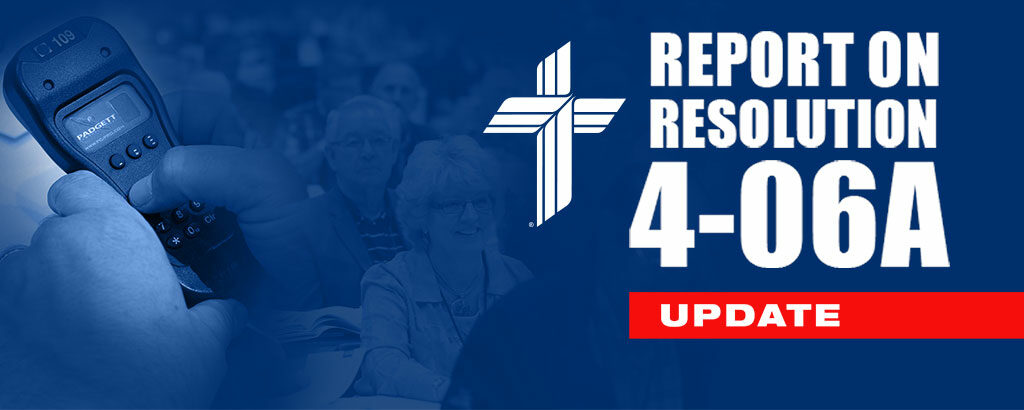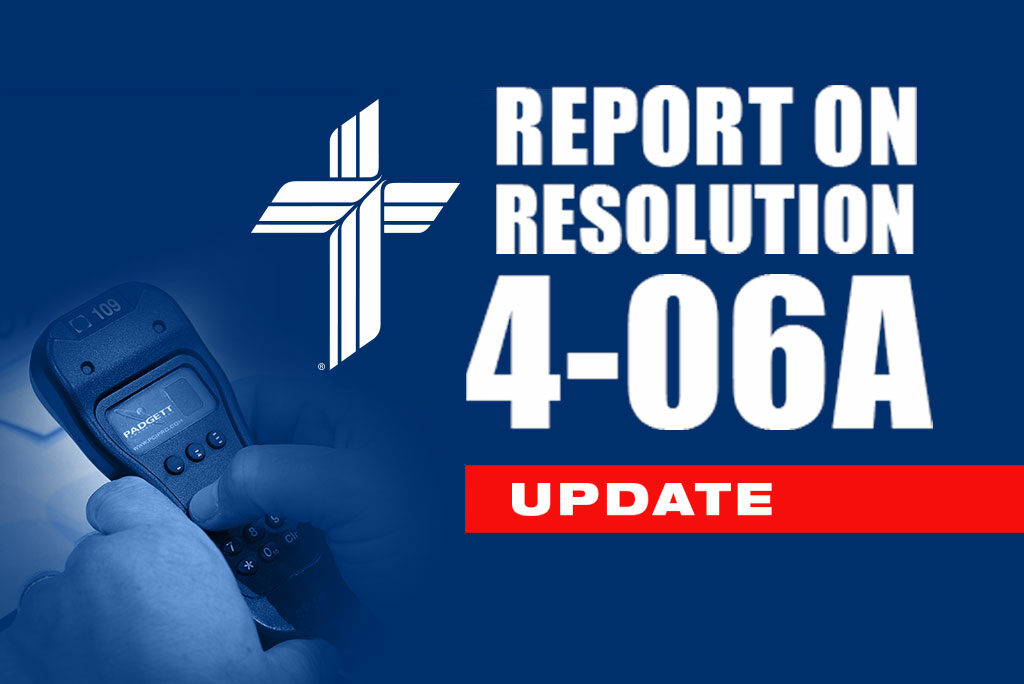
By Paula Schlueter Ross (paula.ross@lcms.org)
A new LCMS video released May 6 explains the recommendations of a task force charged with implementing Resolution 4-06A — “To Address Questions Re: Service of Licensed Lay Deacons” — adopted by delegates at the Synod’s 2013 national convention.
In the 15-minute video, titled “Licensed Lay Deacon Task Force Recommendations,” task force Chairman Rev. Larry Vogel, associate executive director of the LCMS Commission on Theology and Church Relations, acknowledges that there have been “questions and debates” within the Synod about its use of licensed lay deacons (LLDs) for more than 25 years — ever since the program was established by convention action in 1989 as a way of preparing “trained and supervised laymen to serve temporarily in Word and Sacrament ministry when no pastor is available, in exceptional circumstances or in emergencies.”
Opinions vary widely, Vogel notes — from those who believe that “the practice shouldn’t be done” at all, to those who would endorse the service of LLDs beyond temporary or exceptional circumstances.
“After surveying our district presidents and visiting the districts with the most active lay deacons programs,” says Vogel in the video, the task force published its report July 9, 2015. (Click here to see the 32-page report and two-page executive summary. Read a related Reporter Online story, “Task-force report on licensed lay deacons available.”)
“The task force worked with a strong commitment to two things: theology and mission,” he adds, and the report “provides a biblical, theological framework for how laypeople and pastors complement each other in our Lord’s mission and in the church” and proposes recommendations “to try to address the questions and to build greater harmony.”
In its recommendations, Vogel says, the task force tried “to uphold both the biblical teaching of the royal priesthood and the Bible’s teaching about the office of the public ministry” by acknowledging that:
- “every believer — man, woman and child — needs to be able to confess Christ before the world,” and
- “just as surely, when our Synod gives a particular man the responsibility to preach publicly and to administer the sacraments for a congregation, he should do so as a called pastor, and be recognized by all of us as a called pastor.”
Top among the task force’s eight recommendations is providing a special colloquy program to prepare current licensed lay deacons for ordination, which would “answer most of the theological objections” to their service, according to Vogel.
But the recommendations also endorse “fully utilizing” existing nontraditional ordination programs — such as for Specific Ministry Pastor and through the Ethnic Immigrant Institute of Theology, Center for Hispanic Studies and Cross-cultural Ministry Center — as well as identifying and training laity as non-ordained evangelists.
In addition to Vogel, the new video features perspectives from President Rev. Dr. Roger C. Paavola and two other representatives of the LCMS Mid-South District, which already is implementing some of the task force recommendations.
“This is an opportunity to affirm these [licensed lay deacons], saying ‘we recognize what you do as being the Lord’s work in this place, and we want to remove any doubt that others might have that you should be there doing that,’ ” explains the Rev. Russell L. Shewmaker, chairman of the district’s Licensed Lay Deacon Committee. “And why wouldn’t we ordain them? Because they do the work of the pastor, they should be ordained.”
The video also features comments from Deacon Bill Schutte of Mountain Home, Ark., who has served more than 13 years as a non-ordained pastor and views the task force’s recommendation that LLDs be ordained as being supportive of — and validation for — his ministry.
“I think it’s important for these people to be recognized for what they’re doing — that if they’re going to fill the office of the pastor, that they be called pastor,” Schutte says.
“This task force has given us a way forward, to place these [licensed lay deacons] fully in the office of the ministry, and to recognize them as such, with all the blessings and benefits thereof,” says LCMS President Rev. Dr. Matthew C. Harrison in the video. “We also can have enough flexibility” — such as through the Specific Ministry Pastor program and others, he notes — “to continue to serve challenging and difficult situations.”
Adds Harrison: “We want lay-training programs. We want more people, men and women, to go into lay-training programs. We will unveil and launch a huge new evangelism campaign,” he says, and will “need everybody — layperson and clergy — trained in evangelism so we can go forth and proclaim the Gospel everywhere.”
View Video
Other Resources
- Read answers to Frequently Asked Questions – Download PDF
- Visit the Resolution 4-06A Task Force page for more information
Listen to the audio version
Posted May 6, 2016
